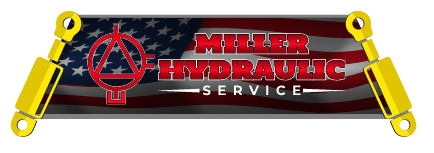Hydraulic Considerations For Your Construction Crane

Hydraulic systems form the backbone of cranes, playing an indispensable role in their operation and efficiency. For business owners in the construction industry, understanding the intricacies of crane hydraulics is critical when acquiring a new crane. This blog post aims to provide you with an overview of crane hydraulic system considerations that can significantly impact the performance, safety, and cost-efficiency of your construction projects.
Hydraulic Pumps: The Heart of the System
The hydraulic pump is one of the most crucial elements of a crane's hydraulic system. It serves as the primary source of hydraulic pressure. When selecting a new crane, it is essential to consider the type and capacity of the hydraulic pump. Gear pumps, vane pumps, and piston pumps stand as prevalent variants among hydraulic pump types. Each type has its advantages and is suited for specific applications. Ensuring that the pump can handle the maximum load conditions anticipated is vital for sustained operational efficiency.
Importance of Fluid Control
Hydraulic fluid is the lifeblood of the system, transferring power from the hydraulic pump to the cylinders and motors. The choice of hydraulic fluid, its quality, and its maintenance are critical factors that affect the crane's performance and longevity. High-quality hydraulic fluid reduces wear and tear on system components, minimizes the risk of breakdowns, and extends the operational life of the hydraulic system. Regularly inspecting and changing the hydraulic fluid, as per manufacturer recommendations, is a practical approach to ensuring continuous and efficient operation.
Hydraulic Cylinders and Their Role
Hydraulic cylinders are responsible for converting the hydraulic energy into mechanical force. These cylinders enable the crane to lift and move heavy loads. When considering a new crane, scrutinizing the hydraulic cylinders' materials, construction quality, and load capacities is crucial. Cylinders made from high-strength materials and designed to withstand the specific demands of your projects can prevent breakdowns and enhance the crane's operational efficiency.
Efficient Hydraulic Valve Systems
Hydraulic valves control the flow and pressure of hydraulic fluid within the system. They are instrumental in directing the hydraulic fluid to various parts of the crane, enabling precise and controlled movements. Reliable valve systems ensure that the crane operates smoothly and safely, even under demanding conditions. When acquiring a new construction crane, check for advanced hydraulic valve systems that offer superior flow control and pressure management.
Hydraulic Fluid Filtration
Hydraulic fluid filtration is another critical consideration. Contaminants in the hydraulic fluid can cause damage to system components, leading to inefficiencies and potential failures. Advanced filtration systems are designed to remove impurities and maintain the fluid's cleanliness, thus enhancing the reliability and lifespan of the hydraulic system. Investing in cranes with robust filtration systems is a sound decision for long-term operational success.
Temperature Management
Hydraulic systems generate heat during operation, and effective temperature management is essential to maintain system efficiency. Overheating can result in fluid degradation, component damage, and reduced performance. High-quality construction cranes typically incorporate advanced cooling systems to manage hydraulic fluid temperature. Evaluating the cooling mechanisms and ensuring they are adequate for your operational conditions is a practical consideration when selecting a new crane.
Cost Implications of Hydraulic Maintenance
While the initial acquisition cost of a crane is significant, ongoing hydraulic maintenance costs should also be accounted for. Routine inspections, fluid changes, component replacements, and potential repairs can add up over the crane's lifecycle. Selecting cranes known for their hydraulic reliability and lower maintenance needs can lead to significant cost savings. Understanding the manufacturer's maintenance recommendations and ensuring your team is trained in hydraulic system upkeep can further help in mitigating long-term expenses.
Impact on Crane Performance and Safety
Perhaps the most important consideration is the impact of the hydraulic system on overall crane performance and safety. A well-maintained hydraulic system ensures smooth operation, precise control, and the ability to handle rated loads safely. Conversely, hydraulic failures can lead to operational delays, accidents, and increased liability for construction business owners. Investing in reliable crane hydraulic services and ensuring regular maintenance checks is crucial for both operational efficiency and workplace safety.
Understanding hydraulic considerations is paramount for business owners in the construction industry when acquiring a new crane. Prioritizing cranes with robust, efficient, and easily maintained hydraulic systems can lead to enhanced operational efficiency, safety, and cost savings. Contact us at Miller Hydraulic to learn more about crane hydraulics.





